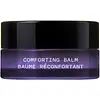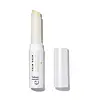What's inside
What's inside
 Key Ingredients
Key Ingredients

 Benefits
Benefits

 Concerns
Concerns

No concerns
 Ingredients Side-by-side
Ingredients Side-by-side

Ricinus Communis Seed Oil
MaskingBeeswax
Emulsion StabilisingCamellia Oleifera Seed Oil
Skin ConditioningPersea Gratissima Oil
Skin ConditioningOlea Europaea Fruit Oil
MaskingButyrospermum Parkii Butter
Skin ConditioningSynthetic Beeswax
Emulsion StabilisingParfum
MaskingHelianthus Annuus Seed Oil
EmollientDaucus Carota Sativa Root Extract
Skin ConditioningDaucus Carota Sativa Seed Oil
EmollientBeta-Carotene
Skin ConditioningAnastatica Hierochuntica Extract
AstringentButylene Glycol
HumectantCaprylyl Glycol
EmollientPhenoxyethanol
PreservativePEG-8
HumectantTocopherol
AntioxidantAscorbyl Palmitate
AntioxidantAscorbic Acid
AntioxidantWater
Skin ConditioningCitric Acid
BufferingRicinus Communis Seed Oil, Beeswax, Camellia Oleifera Seed Oil, Persea Gratissima Oil, Olea Europaea Fruit Oil, Butyrospermum Parkii Butter, Synthetic Beeswax, Parfum, Helianthus Annuus Seed Oil, Daucus Carota Sativa Root Extract, Daucus Carota Sativa Seed Oil, Beta-Carotene, Anastatica Hierochuntica Extract, Butylene Glycol, Caprylyl Glycol, Phenoxyethanol, PEG-8, Tocopherol, Ascorbyl Palmitate, Ascorbic Acid, Water, Citric Acid
Pentaerythrityl Tetraethylhexanoate
EmollientBis-Diglyceryl Polyacyladipate-2
EmollientDipentaerythrityl Hexa C5-9 Acid Esters
Skin ConditioningPolyethylene
AbrasiveLimnanthes Alba Seed Oil
Skin ConditioningSimmondsia Chinensis Seed Oil
EmollientCannabis Sativa Seed Oil
EmollientCeresin
Emulsion StabilisingDaucus Carota Sativa Seed Oil
EmollientZea Mays Oil
EmulsifyingHelianthus Annuus Seed Oil
EmollientAscorbyl Palmitate
AntioxidantDaucus Carota Sativa Root Extract
Skin ConditioningCaprylyl Glycol
EmollientPhenoxyethanol
PreservativeBHT
AntioxidantPentaerythrityl Tetraethylhexanoate, Bis-Diglyceryl Polyacyladipate-2, Dipentaerythrityl Hexa C5-9 Acid Esters, Polyethylene, Limnanthes Alba Seed Oil, Simmondsia Chinensis Seed Oil, Cannabis Sativa Seed Oil, Ceresin, Daucus Carota Sativa Seed Oil, Zea Mays Oil, Helianthus Annuus Seed Oil, Ascorbyl Palmitate, Daucus Carota Sativa Root Extract, Caprylyl Glycol, Phenoxyethanol, BHT
Alternatives
Ingredients Explained
These ingredients are found in both products.
Ingredients higher up in an ingredient list are typically present in a larger amount.
Ascorbyl Palmitate is created by combining pure Vitamin C and palmitic acid. It is an antioxidant and helps reduce hyperpigmentation.
This ingredient is a more stable version of Vitamin C, meaning it does not disintegrate as quickly when exposed to sunlight. However, studies show it does not penetrate skin as well as pure Vitamin C.
Ascorbyl Palmitate is oil soluble.
Read more about other types of Vitamin C:
Learn more about Ascorbyl PalmitateCaprylyl Glycol is a humectant and emollient, meaning it attracts and preserves moisture.
It is a common ingredient in many products, especially those designed to hydrate skin. The primary benefits are retaining moisture, skin softening, and promoting a healthy skin barrier.
Though Caprylyl Glycol is an alcohol derived from fatty acids, it is not the kind that can dry out skin.
This ingredient is also used as a preservative to extend the life of products. It has slight antimicrobial properties.
Learn more about Caprylyl GlycolDaucus Carota Sativa Root Extract comes from the root commonly known as carrot (the orange kind we eat!).
This extract contains beta-carotene, a pigment responsible for giving plants the orange color. Beta-carotene is a potent antioxidant. Antioxidants may help reduce the signs of aging.
Beta-carotene is the reason we turn orange if we eat too many carrots.
It should be noted coming into contact with the leaves of wild carrots can cause skin irritation. The sap causes phytophotodermatitis, or sensitivity exposed to sunlight.
This ingredient is created using the edible parts of the carrot.
Learn more about Daucus Carota Sativa Root ExtractDaucus Carota Sativa Seed Oil is the oil obtained from the seed of the edible carrot. The oil is created by steaming and distilling the seeds of the plant.
Carrot Seed Oil has hydrating, anti-inflammatory, and antioxidant properties.
As an emollient, carrot seed oil creates a thin film on the skin. This film prevents moisture from escaping, keeping your skin hydrated. Carrot seed oil has a soothing effect and can help alleviate inflammation.
As an antioxidant, carrot seed oil may help reduce the signs of aging. Antioxidants are able to neutralize free-radical molecules, or molecules that can damage our skin's cells and DNA.
Emerging studies show the alpha-pinene and carotol content give carrots antibacterial and antifungal properties. However, this is dependent on the amount of each compound. More studies are needed.
Carrot Seed Oil is not carrot oil. Carrot oil is created by mixing parts of the carrot in a carrier oil, such as coconut oil.
Learn more about Daucus Carota Sativa Seed OilHelianthus Annuus Seed Oil is the oil derived from the seeds of a Sunflower. Sunflower seed oil is non-fragrant. It is an emollient, meaning it helps to soften the skin.
Sunflower seed oil contains many fatty acids. The fatty acids found in sunflower seeds include (from highest amount to least): linoleic acid, myristic acid, palmitic acid, stearic acid, arachidic acid, oleic acid, and linolenic acid.
These fatty acids help the skin create ceramides. Ceramides play a role in repairing the skin barrier.
Helianthus Annuus Seed Oil helps moisturize the skin. This in turn helps the skin look more rejuvenated and smoother.
Sunflowers are rich in vitamin E.
Historians believe Indigenous cultures of North America domesticated sunflowers before corn. Thus they relied on sunflower oil for a variety of uses. One such use is moisturizing skin and hair.
Sunflower seed oil may not be fungal acne safe. We recommend speaking with a professional if you have any concerns.
Learn more about Helianthus Annuus Seed OilPhenoxyethanol is a preservative that has germicide, antimicrobial, and aromatic properties. Studies show that phenoxyethanol can prevent microbial growth. By itself, it has a scent that is similar to that of a rose.
It's often used in formulations along with Caprylyl Glycol to preserve the shelf life of products.